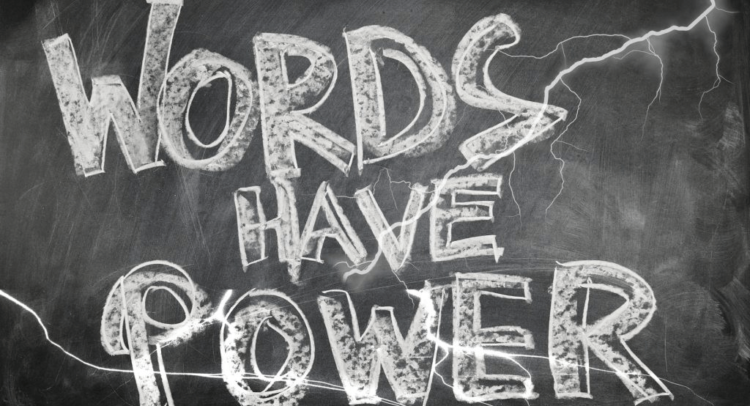Raboyseyee and Ladies,
Mars, Stars, & the Power of Words
Once again, the Ois harkens back a few weeks to his review of Parshas Vayichi (see it here) titled Reconciliation Without Forgiveness. Why? Because kimat every day since, this topic has come up in various conversations, WhatsApp’s, emails and more. This past Sunday, while schmoozing with a chaver who was considering but not yet sure about some form of forgiveness or reconciliation -not yet decided- or keeping the status quo of not talking at all to a relative who aggrieved him with words, the Ois decided to dig further and see if there was any relevance at all to harmful words in this week’s parsha. And wouldn’t you know? Our parsha features a total breakdown of communications over a few words exchanged between Paroy and Moishe. Were the words intentional so as to cause so severe a reaction? We shall explore them below. The bottom line: Everything one needs to know is right there in the heylige Toirah, usually further elucidated in the heylige Gemora and by many other exegetes.
Welcome then to Parsha Boi where the RBSO will deliver the last of the three makot (plagues) upon the hapless Mitzrim, and where the real exodus takes place. Though we are all more familiar with next Shabbis, known colloquially as “Shabbis Shira” where we sing the song of the sea, the famous Oz Yoshir hit -still playing once a year and which retells the entire story of the Exodus -the real Yitziyas Mitzrayim – the one that gave birth to Pesach getaways all over the world and the hope of being sponsored by a family member- takes place mamish in this week’s parsha. It is described in but one posik. So much buildup to the event and shoin; one posik later, it was over. Many can relate, if you chap.
Ober, let us not skip over the introduction to plague number eight which opens the parsha, and contains the conversation between Paroy, Moishe and Aharoin. It’s a classic case of where and how words spoken -five specific ones- (six when translated into English) were interpreted, construed, and perhaps misconstrued by the parties in the room and by our sages ever since. These five words led to a breakdown in the negotiations and to the next plague. What five words? Who said them? What was wrong with these five words? Why were no further words spoken for a while? Can, and should words -misconstrued intentionally or by accident- lead to a breakdown in discussions and negotiations?
Shoin, let us set the scene. The RBSO has already struck the Mitzrim with seven plagues and Moishe has just warned Paroy that the RBSO is about to further harm the Egyptians and their economy with a form of the worst swarm of locusts Egypt has ever seen. Paroy, at the behest of his servants, is holding an emergency meeting with Moishe and Aharoin at the palace. Paroy asks Moishe just whom he wants to take along with him to the desert worship outing. Moishe answers (posik 9), “We will all go, young and old: we will go with our sons and daughters, our flocks and herds; for we must observe the RBSO’s festival.”
Paroy strikes back with a counter-offer; let us read the posik innaveynig (Shmois 10:10-11):
| 10. So he [Paroy] said to them, “So may the Lord be with you, just as I will let you and your young children out. See that evil is before your faces. | יוַיֹּ֣אמֶר אֲלֵהֶ֗ם יְהִ֨י כֵ֤ן יְהֹוָ֙ עִמָּכֶ֔ם כַּֽאֲשֶׁ֛ר אֲשַׁלַּ֥ח אֶתְכֶ֖ם וְאֶת־טַפְּכֶ֑ם רְא֕וּ כִּ֥י רָעָ֖ה נֶ֥גֶד פְּנֵיכֶֽם: | |
| 11. Not so; let the men go now and worship the Lord, for that is what you request.” And he chased them out from before Pharaoh. | יאלֹ֣א כֵ֗ן לְכ֙וּ נָ֤א הַגְּבָרִים֙ וְעִבְד֣וּ אֶת־יְהֹוָ֔ כִּ֥י אֹתָ֖הּ אַתֶּ֣ם מְבַקְשִׁ֑ים וַיְגָ֣רֶשׁ אֹתָ֔ם מֵאֵ֖ת פְּנֵ֥י פַרְעֹֽה: |
Did you read that response? “May the LORD be with you, just as I will let you and your young children out. See that evil is before your faces. Not so; let the men go now and worship the RBSO, for that is what you request”. Neither side budges, Paroy blows up the negotiations, chases them away, and Egypt is pummeled by locusts, plague number eight.
And the questions are azoy: what was so giferlich about what Paroy said? And what caused him – the speaker of the words- to get so angry as to break off talks and chase Moishe and Aharoin out of the palace? What about Moishe’s response caused Paroy to answer so dramatically? What did Paroy mean to convey with the words, “see that evil is before your faces?”
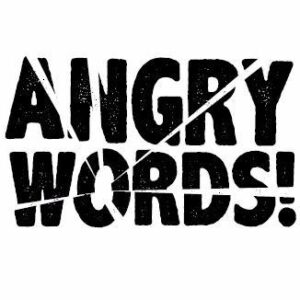
The answer Raboyseyee is not so simple and depends mamish on which pshat talks to you; there are many to pick from. Can they all be true? Mistama not! Specifically, those that are mutually exclusive. That being said, it’s still interesting to learn how each of the commentators thought and why. What Paroy meant is -of course- not agreed upon. The bottom line is this: these five words caused a breakdown in the negotiations, and in the discussions. Paroy chased them out of the palace. Ober, why all the controversy about these few words? In response to Paroy’s question as to who was to attend the festival, Moishe said, ‘we are all going.’ All meant adults, kids, and even animals. Paroy then -seemingly sarcastically- said this: of course, you are! He then dropped the mic with the next five words רְא֕וּ כִּ֥י רָעָ֖ה נֶ֥גֶד פְּנֵיכֶֽם :
And the big deal? Nu, it so happens that by sheer coincidence, the Hebrew word רָעָה (raʿah or evil) is the name of the Egyptian sun-god Ra, the head of the pantheon. What that means, ver veyst, but as we know from other pisukim, the Mitzrim seemed to have worshipped many gods. In this bilingual pun, made possible by this linguistic coincidence, Paroy denied the request of the Yiddin to worship the RBSO, but also stated, as it were, “that Ra is before you; trouble is lurking should you make a move.”
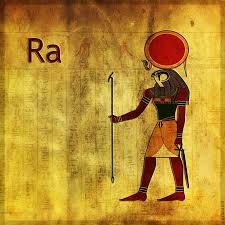
Let’s find out what a few had to say about what may have caused Paroy to then break off further discussions. A number of commentators tell us that Paroy was telling Moishe that he (correctly) suspected that a nation that takes its children on a three-day trip to worship, probably has no plans to return. They are planning an escape. Paroy was telling Moishe that his actions revealed the evil (the ra’ah) lurking in his heart. That Moishe was a fraud, that the Yiddin were not ever retuning. Let’s get real: that is what Moishe did tell Paroy at a few points in time. In fact, Moishe never stated -at least not in the pisukim- otherwise.
Ober what sayeth Rashi? As mentioned above, there seems to be a consensus among various commentators that the words used by Paroy should be read in a sarcastic vein; “just as I would send out your people, so too your G-d will be with you.” In this manner, Paroy intended to curse the people, intimating that just as he would never send away the Yiddin, their G-d would never be with them. Once he heard Moishe’s demands -and maybe even before- he had already decided that he wasn’t letting his subjects leave.
Rashi does give us an interpretation of the second half of the posik. The evil or Ra’ah that Paroy warns them about has two possible understandings. Ershtens, Rashi tells us that the verse could be understood according to the Aramaic translation of Unkelis. In case you forgot, Unkelis was a convert -originally a Roman nobleman- who did tshuvah and made his way into kimat every single chumish ever printed. Very impressive. Want more on him? Check him out on Wikipedia. According to Unkelis, Paroy warned Moishe and Aharoin that they should be careful, that the evil that they are planning (running away) should not turn around and hit them -boomerang style- in the face. According to this understanding, Paroy fully understood the intentions of the Yiddin and accordingly warned them against attempting an escape. No need to further discuss.
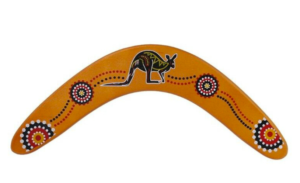
And, let us check out another potential pshat, this one, astrological in nature, and also quoted by Rashi, who, citing the medrish tells us this: ומדרש אגדה שמעתי כוכב אחד יש ששמו רעה. אמר להם פרעה רואה אני באיצטגנינות שלי אותו כוכב עולה לקראתכם במדבר והוא סימן דם והריגה.
“I heard a medrish aggada: There is a star, and its name is Raʿah.” Paroy said to them, “I see through my astrology this star rising to meet you in the wilderness, and it is a sign of blood and killing.” The medrish, in mamish extraordinary fashion, understood רָעָה (Raʿah) not only as “evil,” but also as the name of the Egyptian sun-god (or at least a star by the name of Ra, which is close enough for our present purposes), hence we may wish to render the passage: “see, for there is evil/Ra before you.”
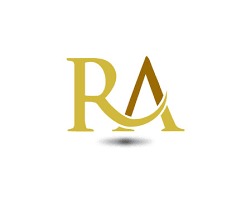
Ober, what the hec is this Ra or Ra’ah thing? What powers did it supposedly have? Was it a god of some sort? Was it but magic? Is magic real? Nu, some suggest that Ra’ah is actually the god Ra, one of the most important gods in ancient Egypt. Mamish? And Moishe was to be afraid of this false god? According to many, Ra was the god of the sun, not the god of the star associated with “blood and slaughter,” most likely Mars. The Egyptian god associated with Mars was “Horus of the Horizon” or “Horus the Red.” What was the Ra’ah Paroy was talking about? Ver veyst! Moreover, even were we to assume that Paroy was but warning Moishe that one of the Egyptian gods will strike the Jewish People down in the desert were they to dare leave -and let us assume for the moment that Ra’ah possessed real power- why would Moishe care? No matter how powerful this Ra’ah was, he was no match for the RBSO. Moishe should have told Paroy that the only “blood and slaughter” in the cards was Egyptian blood – their firstborn were all to die in the tenth plague and their entire army was to be drowned in Yam Suf (Reed Sea). Ober, Moishe never got the chance; Paroy shut down the conference without taking questions. Mic drop!
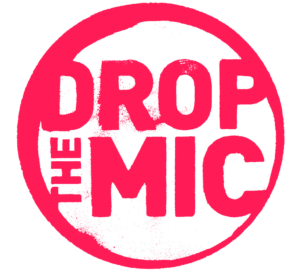
Paroy tells Moishe that the constellation Ra’ah which is a symbol of blood and murder, awaits their arrival in the desert. Rashi continues -as will we below- to explain that later in the desert, following the sin of the eygel (golden calf), Moishe would implore the RBSO not to destroy the Yiddin for the Egyptians would sense vindication in their warning. Moishe will plead: “why should Mitzrayim claim ‘He took them out in Ra’ah?’” Was Moishe spooked by this Ra’ah?
Let’s check out the RambaN (that’s why the Ois did this past shabbis as the shul was listening to the parsha) who says azoy: Regarding Paroy’s initial question as to who will be leaving, Paroy had a hidden agenda; he had no plans of letting the men go and of course, no one else either. Why did Paroy warn about Ra’ah facing them should they make a move? As a further warning to let them know that were they to escape, bad stuff is about to happen to them through this Ra’ah.
And says the Netziv, azoy: the Ra’ah described by Paroy is a suggestion to the Yiddin concerning their journey. Paroy is saying to them, “you are looking for evil by bringing young into the desert, a place of drought and destruction.” Paroy suggests that they only send the men, for only they would be able to withstand the conditions of the desert. According to this pshat, we may efsher conclude that Paroy was willing to allow the people to leave, and indeed even afforded them advice on desert travel! Paroy’s words about Ra’ah were then not meant to be hurtful.
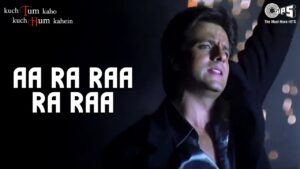
A star named Ra’ah? A bad star with a bad omen? What’s pshat? Says the Kli Yokor citing the heylige Gemora (Shabbos 156a) that someone who is born under Mazel Ma’adim will grow into a person who sheds blood. He is therefore advised to become either a shoichet or a mohel (someone who ritually slaughters animals for consumption or one who performs the bris on baby boys). And he equates these two alternatives with the dual interpretation of ‘bloodshed,’ which can refer either to killing or to wounding. Ober how is this at all related to our parsha and with what Paroy said? Shoin halt zich ein (patience please), here we go. He explains azoy: because the Yiddin weren’t really worthy of redemption from slavery, the RBSO gave them two mitzvis to observe; both entailed some blood. The blood of Pesach and the blood of Milah. Together they represented killing and creating a wound. For what? To counter any decree of bloodshed that Ra’ah might otherwise have had in store for them. Noch a mul with this Ra’ah? Mamish? This Ra’ah thing is real? It had real powers? This might also explain Paroy’s excuse for refusing to let the women and children leave Egypt. The men could protect themselves against the killer-star Ra’ah by performing the b’ris milah and shechting (slaughtering) the Korban Pesach. But the women and children were different. It was not the way of the latter to worship, he argued, whereas the former, were not subject to the mitzvah of milah. Consequently, they would be safer if they remained in Egypt.
And the bottom line? What was this Ra’ah? Did it have powers? Was it magical? Ver veyst: but! The Kli Yokor’s pshat pertains to steps the RBSO took to protect the Yiddin from the forces of this Ra’ah before they worshipped the Eygel. Had they not done so, Ra’ah would not have posed any further threat. But sin they did, and the threat of annihilation reappeared. That’s the threat Rashi addresses by concluding that on account of Moishe’s davening, the RBSO mercifully transferred the bloodbath that was destined to flow from the sin of the Eygel, to the Mitzvah of the B’ris Milah, which Yehoishua performed on all the Jewish males who had been born in the desert, and who had not yet been circumcised before entering the Promised Land.
What? There were Yiddin in the midbar about the enter the Promised Land without a bris milah? And there were Yiddin about to eat the Korban Pesach and about to be freed from slavery who were still intact, if you chap? More on that topic below. The bottom line according to this pshat is this: Paroy was but looking out for the welfare of his subjects, the Yiddin. And how do you like that?
Speaking of Yiddin who were not circumcised, let us revisit the medrish which talks about the star Ra’ah (lit: evil). Paroy said to [Moishe], ‘With my astrology, I see that star ascending toward you in the desert -where you would like to go- and that is a sign of blood and slaughter.’ When the Yiddin sinned and the RBSO sought to kill them, Moishe beseeched the RBSO (Shmois 32:12), ‘Why should the Egyptians say, ‘With Ra’ah He took them out…?’ Let us recall how Paroy warned Moishe about Ra’ah. “See that Ra’ah [evil] is opposite your faces” [implying that their blood would be shed in the desert]. Moishe’s strategy worked; metaphorically avada, he talked the RBSO down. Immediately, ‘The RBSO changed His mind from the Ra’ah and He turned the bloodshed [symbolized by this star] into the blood of the circumcision. In fact, Yihoishua circumcised the Yiddin in the midbar.” He did what? Circumcised who? And weren’t they all already previously circumcised before they left Egypt? Taka an excellent question and let’s find out.
Nu, as you should well remember from your days in yeshiva and as mamish described in our parsha, the exodus came off ok. Seemingly and as just discussed above, other things came off below; let’s find out what and how many. In pisukim 3-7 of Perek 12 in our parsha, the RBSO keeps the Yiddin busy with preparations of the Korban Pesach (Paschal offering). What they were to do with it, when to slaughter it, what to do with its blood, and a bit later, who was eligible to eat it. The instructions are clear until we get to a new set beginning with posik 43 where the RBSO imposes restrictions on His earlier directions. After the RBSO ordered every family to prepare a lamb, He also –20 plus pisukim later- provided new details on the eligibility to partake. In order to eat of the offering, the male must be circumcised. Not cut down to size? No food for you! Shoin. And just how far will a Jew go for some good food? For a good shtikel fliesh? Seemingly very. Ober what has the penis and the blood associated with circumcision have to do with the korban Pesach? All that for another day. Is the foreskin of the human penis the sole determining factor in who can eat the korban Pesach? Mamish? Says who? The heylige Toirah and it could not be any clearer. Psukim 43-48 -below- specifically excluded anyone not circumcised from enjoying the korban.
| 43. The Lord said to Moses and Aaron, “This is the statute of the Passover sacrifice: No estranged one may partake of it. | מגוַיֹּ֤אמֶר יְהֹוָה֙ אֶל־משֶׁ֣ה וְאַֽהֲרֹ֔ן זֹ֖את חֻקַּ֣ת הַפָּ֑סַח כָּל־בֶּן־נֵכָ֖ר לֹא־יֹ֥אכַל בּֽוֹ: | |
| 44. And every man’s slave, purchased for his money you shall circumcise him; then he will be permitted to partake of it. | מדוְכָל־עֶ֥בֶד אִ֖ישׁ מִקְנַת־כָּ֑סֶף וּמַלְתָּ֣ה אֹת֔וֹ אָ֖ז יֹ֥אכַל בּֽוֹ: | |
| 45. A sojourner or a hired hand may not partake of it. | מהתּוֹשָׁ֥ב וְשָׂכִ֖יר לֹא־יֹ֥אכַל בּֽוֹ: | |
| 46. It must be eaten in one house; you shall not take any of the meat out of the house to the outside, neither shall you break any of its bones. | מובְּבַ֤יִת אֶחָד֙ יֵֽאָכֵ֔ל לֹֽא־תוֹצִ֧יא מִן־הַבַּ֛יִת מִן־הַבָּשָׂ֖ר ח֑וּצָה וְעֶ֖צֶם לֹ֥א תִשְׁבְּרוּ־בֽוֹ: | |
| 47. The entire community of Israel shall make it. | מזכָּל־עֲדַ֥ת יִשְׂרָאֵ֖ל יַֽעֲשׂ֥וּ אֹתֽוֹ: | |
| 48. And should a proselyte reside with you, he shall make a Passover sacrifice to the Lord. All his males shall be circumcised, and then he may approach to make it, and he will be like the native of the land, but no uncircumcised male may partake of it. | מחוְכִֽי־יָג֨וּר אִתְּךָ֜ גֵּ֗ר וְעָ֣שָׂה פֶ֘סַח֘ לַֽיהֹוָה֒ הִמּ֧וֹל ל֣וֹ כָל־זָכָ֗ר וְאָז֙ יִקְרַ֣ב לַֽעֲשׂת֔וֹ וְהָיָ֖ה כְּאֶזְרַ֣ח הָאָ֑רֶץ וְכָל־עָרֵ֖ל לֹא־יֹ֥אכַל בּֽוֹ: |
The bottom line: As the Yiddin were getting ready to leave Mitzrayim, the RBSO declared that only males who have been circumcised may participate in the paschal offering and the seder meal, celebrating and recounting His deliverance of them from slavery. And? It is seemingly clear from the instructions just how important the bris mila is to the RBSO. Only those with the bris are to be fully included in the community’s central activities.
Ober the shaylo (question) is azoy: weren’t all Yiddin already circumcised? Didn’t all Yiddin beginning with Avrohom Ovenu already practice bris mila? Is it shayich that there came a point in time over the generations when bris mila went out of style? When it was decided that Jews born to a Jewish mother are Jewish with or without the foreskin being the only determinant? Says the medrish it’s taka azoy: the Yiddin neglected the bris mila during their forty years of midbar wanderings, say it’s not so, but it seemingly was. And we know this how? Because one of the first things that Moishe’s successor Yehoishua attended to before initiating the conquest of K’nan was the circumcision of all of the males who had been born during the years of wandering. Says the Novee (Yishoishua 5:4-5): “This is the reason why Yehoishua performed the circumcision: all of the people who had come out of Egypt, all of the males of military age, had died during the desert wanderings after leaving Egypt. Now, whereas all of the people who came out of Egypt had been circumcised, none of the people born after the exodus, during the desert wanderings, had been circumcised. To remedy this, the entire male population was circumcised before beginning the conquest of the promised land.
Did you read that? All males leaving Egypt were circumcised! Ober we need to clarify veyter. It’s taka emes that all the Yiddin leaving Mitzrayim were already circumcised, ober that only took place only days before, or perhaps, but one day before they left Mitzrayim. Seemingly they had abandoned bris mila during slavery. Mamish all Yiddin born during slavery were uncircumcised? Seemingly that was the case for at least a great majority of the Yiddin, ober not all. Says the medrish (Shmois Rabba 19:5), azoy: The people were reluctant to perform mila but, when they found out it was a prerequisite for taking part in the Korban Pesach, they became willing to undergo the bris mila. In a slightly different version of what went down, or, more accurately stated, what got taken off, it was not until the preparations for the Korban Pesach began, that the smell of the BBQ enticed them to beg to take part. Only then was Moishe able to get them to perform mila. Shoin, a Jew and his food! In any event, at some point, the Yiddin agreed to undergo a mass circumcision. According to another medrish, both Aharoin and Moishe were personally involved and assisted in the process. Exactly what role each played, ver veyst? Who held what, ver veyst? And know you know: as the Yiddin were getting ready to leave Mitzrayim, a mass circumcision event took place, followed by a party featuring lamb kebabs and more.
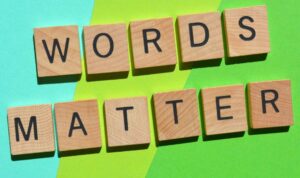
The bottom lines: Specifically what Paroy meant to convey to Moishe when he spoke of the Ra’ah facing the Yiddin, ver veyst? He predicted blood and murder; sadly, there was plenty of that over the forty years. There are many opinions. Were his words impactful? According to some, Moishe took them seriously. Whatever this Ra’ah was, invoking them caused a breakdown in communications. Words -especially angry ones that drop the mic- matter!
A gittin Shabbis-
The Heylige Oisvorfer Ruv
Yitz Grossman
